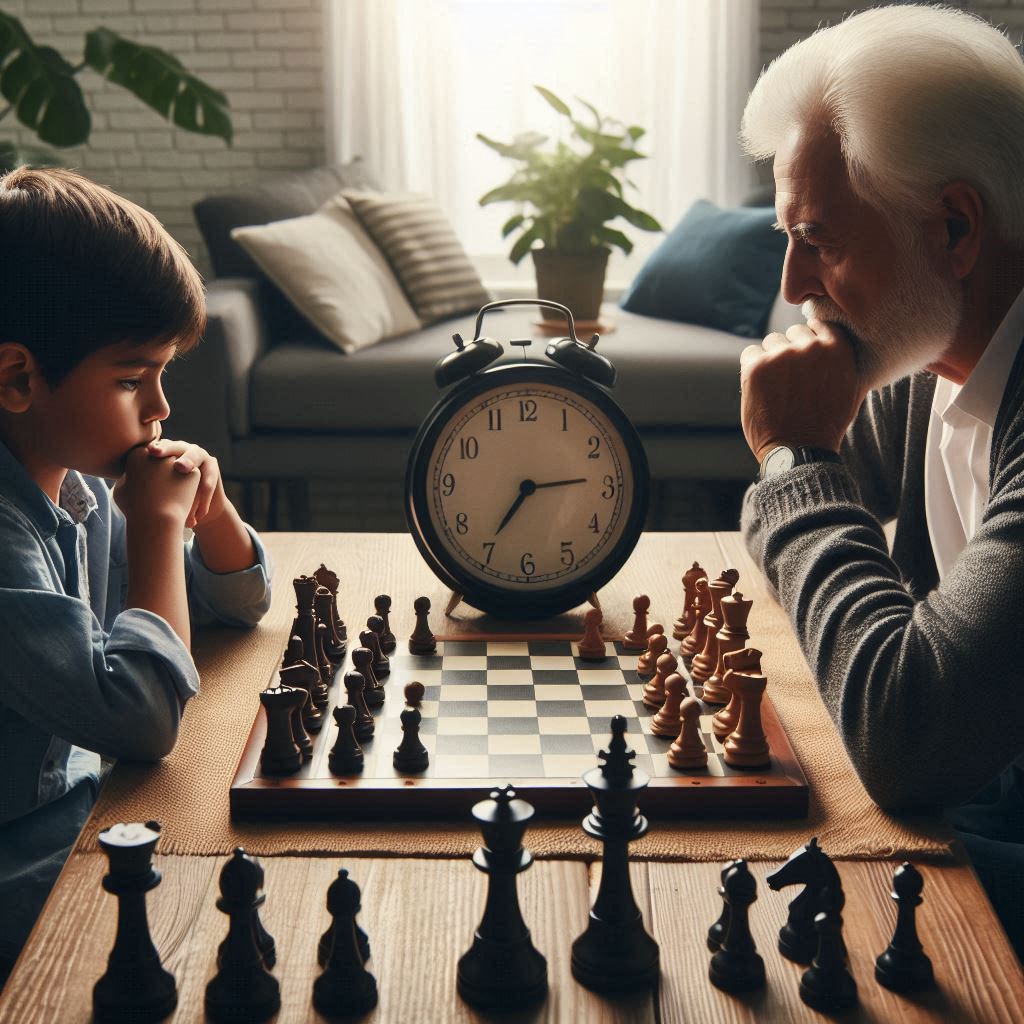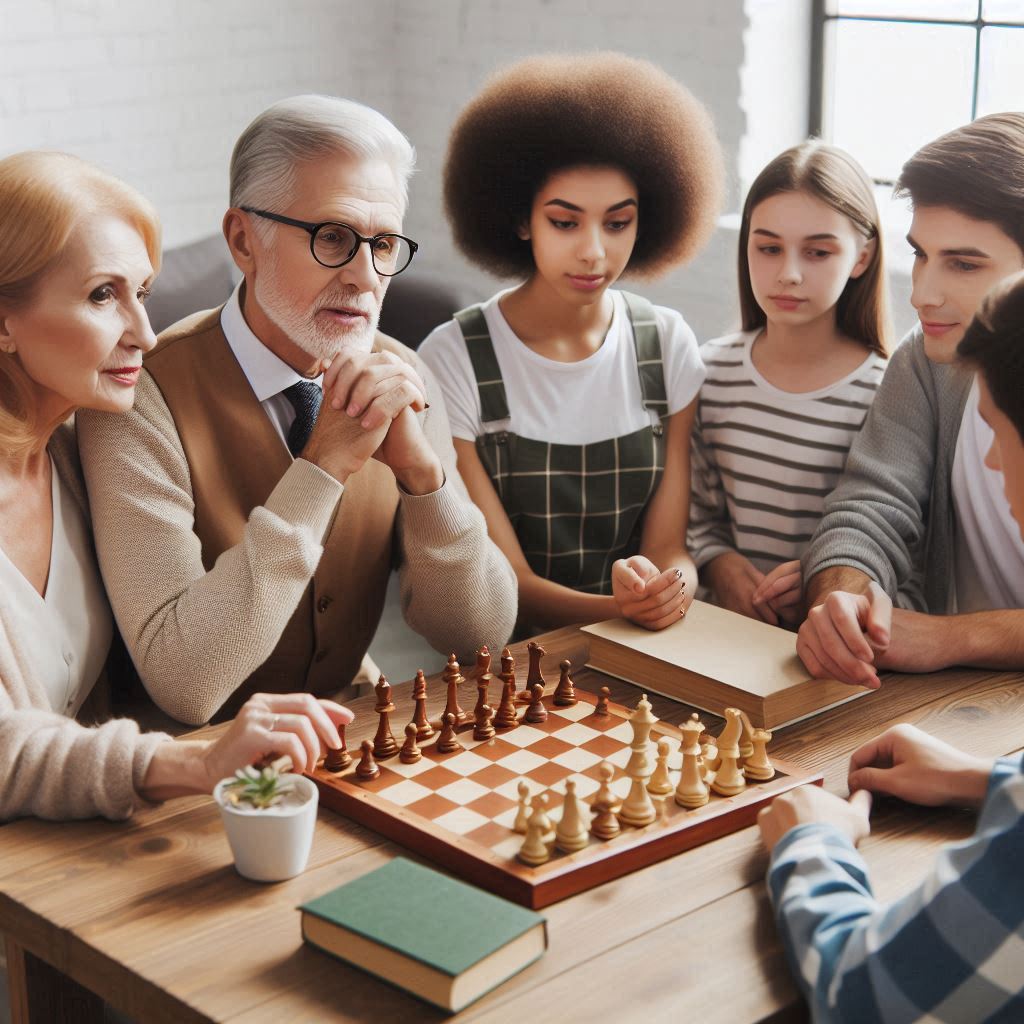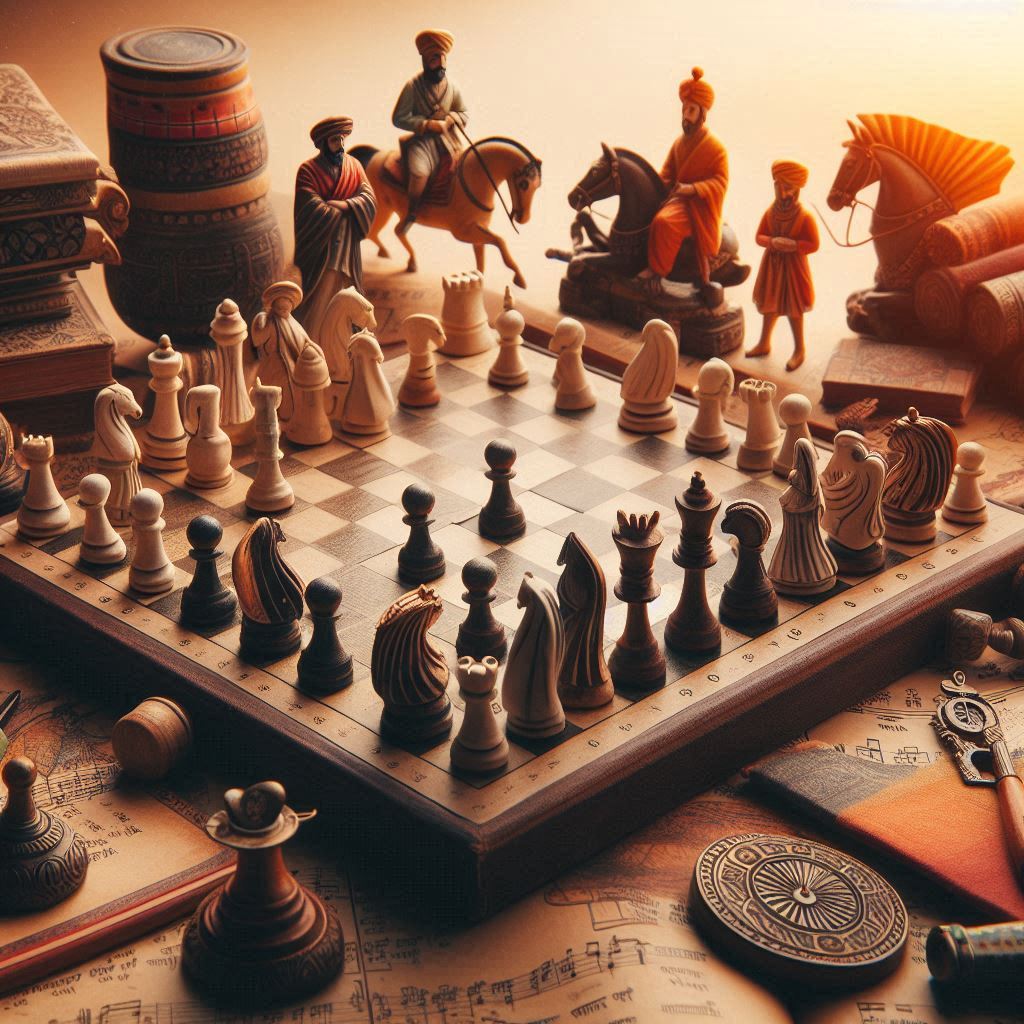Introduction
Improving your chess rating is a rewarding challenge that requires dedication, practice, and strategic thinking. Whether you’re a beginner or an intermediate player, there are several proven methods to boost your performance and elevate your rating. This blog provides practical tips and strategies to help you improve your chess rating and achieve your goals.
1. Understand the Basics
Master the Fundamentals
Before diving into advanced strategies, ensure you have a solid understanding of the basic principles of chess. This includes knowing how each piece moves, basic checkmates, and fundamental tactics.
Key Fundamentals:
- Piece movements
- Check and checkmate patterns
- Basic opening principles (control the center, develop pieces, ensure king safety)
Learn Chess Notation
Understanding chess notation is essential for studying games and sharing your own games for analysis. Familiarize yourself with algebraic notation, which is the standard in chess literature and software.
2. Improve Your Opening Repertoire
Study Common Openings
Develop a strong opening repertoire by studying common and popular openings. Focus on understanding the ideas behind the moves rather than just memorizing sequences.
Recommended Openings:
- For White: Ruy Lopez, Italian Game, Queen’s Gambit
- For Black: Sicilian Defense, French Defense, Caro-Kann Defense
Avoid Opening Traps
Be aware of common opening traps that can lead to quick losses. Understanding these traps helps you avoid them and exploit them when your opponents fall into them.
3. Enhance Your Tactical Skills
Solve Chess Puzzles
Regularly solving chess puzzles helps improve your tactical vision and calculation skills. Start with simple puzzles and gradually move on to more complex ones.
Recommended Resources:
- Chess.com Tactics Trainer
- Lichess.org Puzzles
- Books like “Chess Tactics for Champions” by Susan Polgar
Practice Pattern Recognition
Familiarize yourself with common tactical motifs such as forks, pins, skewers, and discovered attacks. Recognizing these patterns during games can help you find winning combinations.
4. Develop Strategic Understanding
Study Middlegame Strategies
Understanding key middlegame concepts is crucial for improving your overall game. Focus on learning about pawn structures, piece activity, and planning.
Key Concepts:
- Strong and weak squares
- Pawn majorities and minorities
- Attacking and defending strategies
Analyze Master Games
Studying games played by grandmasters helps you understand advanced strategic concepts and ideas. Pay attention to their opening choices, middlegame plans, and endgame techniques.
Recommended Books:
- “My Great Predecessors” by Garry Kasparov
- “My 60 Memorable Games” by Bobby Fischer
5. Strengthen Your Endgame Skills
Learn Basic Endgames
Mastering basic endgames is essential for converting advantages into wins. Start with simple king and pawn endgames and gradually move on to more complex ones.
Key Endgames to Study:
- King and pawn vs. king
- Basic rook and pawn endgames
- Opposite-colored bishop endgames
Practice Endgame Techniques
Work on improving your endgame technique by practicing specific positions and studying endgame principles. Understanding concepts like opposition, triangulation, and zugzwang can give you an edge in endgames.
Recommended Books:
- “Silman’s Complete Endgame Course” by Jeremy Silman
- “Endgame Strategy” by Mikhail Shereshevsky
6. Regularly Analyze Your Games
Self-Analysis
After each game, review it to identify mistakes and missed opportunities. Focus on understanding why certain moves were good or bad and learn from your errors.
Use Chess Engines
Chess engines like Stockfish can provide detailed analysis and suggest better moves. However, use engines as a learning tool and not a crutch. Try to understand the reasoning behind the engine’s suggestions.
Seek Feedback
Share your games with stronger players or coaches to get feedback and advice. They can offer valuable insights and help you identify areas for improvement.
7. Participate in Tournaments
Online Tournaments
Participating in online tournaments provides valuable experience and helps you practice under competitive conditions. Many platforms, such as Chess.com and Lichess, offer regular tournaments for players of all levels.
Over-the-Board Tournaments
Playing in over-the-board (OTB) tournaments is a great way to gain experience and improve your rating. It also allows you to meet other chess enthusiasts and learn from their playing styles.
8. Maintain a Healthy Mindset
Stay Positive
Maintaining a positive attitude is crucial for long-term improvement. Treat each game as a learning opportunity and don’t get discouraged by losses.
Set Realistic Goals
Set achievable goals and track your progress. Focus on gradual improvement rather than instant results.
Practice Consistently
Consistent practice is key to improvement. Set aside dedicated time for chess practice and stick to a regular schedule.
FAQs
How often should I practice chess to improve my rating?
Aim to practice regularly, ideally daily or several times a week. Consistent practice helps reinforce learning and improves your skills over time.
What are some good resources for studying chess openings?
Books like “Fundamental Chess Openings” by Paul van der Sterren and online databases such as ChessBase are excellent resources for studying openings.
How can I improve my tactical skills in chess?
Regularly solve chess puzzles, study tactical motifs, and practice recognizing patterns. Using resources like Chess.com Tactics Trainer or Lichess Puzzles can be very helpful.
Why is endgame study important in chess?
Understanding endgames is crucial for converting advantages into wins and saving difficult positions. Mastering endgame techniques can significantly improve your overall game.
Should I use a chess engine to analyze my games?
Yes, chess engines can provide detailed analysis and suggest better moves. However, use them as a learning tool and try to understand the reasoning behind their suggestions.
How do I stay motivated to improve my chess rating?
Set realistic goals, celebrate small achievements, and focus on gradual improvement. Joining chess communities and participating in tournaments can also keep you motivated.
Conclusion
Improving your chess rating is a journey that requires dedication, practice, and a strategic approach. By mastering the basics, enhancing your tactical and strategic skills, and maintaining a healthy mindset, you can steadily climb the chess rating ladder. Remember, consistency is key, and every game is an opportunity to learn and grow. Whether you’re playing online or over the board, use these tips and strategies to elevate your game and achieve your chess goals.



